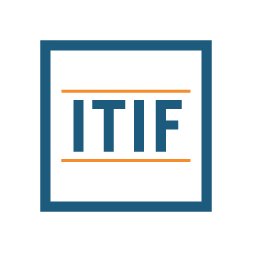To Address Climate Change, New ITIF Report Calls for Robust Energy Innovation Agenda

WASHINGTON — Addressing climate change requires dramatically reducing carbon pollution. Toward this end, a new report released today by the Information Technology and Innovation Foundation (ITIF), the world’s leading think tank for science and technology policy, offers an energy innovation agenda that would tackle the hardest challenges impeding the transition to a low-carbon energy system. The report diagnoses the limits of the current clean energy innovation agenda, identifies sectors and technologies that are underrepresented in the federal energy research, development, and demonstration (RD&D) portfolio, and offers policy recommendations to address the carbon emissions that are most difficult to eliminate.
“Significantly reducing carbon emissions is extremely difficult, and it will require a broad set of technologies that cover all economic sectors,” said ITIF Senior Policy Analyst Colin Cunliff, author of the report. “Generating the sort of technologies that can provide energy that is as cheap and reliable as fossil fuels requires a much more focused and well-funded federal clean energy innovation policy.”
To address the carbon emissions that are most difficult to eliminate, the report identifies six ‘technology missions’ with corresponding policy recommendations that would bridge the gaps in the current RD&D portfolio. The six missions identified are:
- Advanced Nuclear Energy
- Long-Duration Grid Storage
- Carbon-Neutral Fuels
- Carbon Capture, Utilization, and Storage (CCUS)
- Carbon Dioxide Removal Technology
- Basic Energy Research
With regard to long-duration grid storage, which is required for renewable energy to reach its full potential, ITIF released a second new report identifying opportunities to diversify the technology portfolio beyond lithium-ion batteries. Key areas for further energy storage RD&D include pumped-hydropower, flow batteries, liquid metal batteries, thermal storage, compressed air, and hydrogen. It offers recommendations to federal policymakers in the following areas:
- Goal Setting
- Research and Development (R&D)
- International Collaboration
- Technology Demonstration
- Private-Sector Support
- Power-Sector Planning
“The transition to a low-carbon energy system is not occurring fast enough or at sufficient scale to address climate change,” said ITIF Senior Fellow David Hart, author of the second report. “If renewables are to fully displace carbon-emitting fossil fuels, electricity systems will need technologies that provide affordable, reliable long-duration storage at grid scale – which means moving beyond technologies such as lithium-ion batteries. Policymakers should act now to nurture the next wave of energy storage technologies.”
Read the reports:
- An Innovation Agenda for Deep Decarbonization: Bridging Gaps in the Federal Energy RD&D Portfolio
- Making “Beyond Lithium” a Reality: Fostering Innovation in Long-Duration Grid Storage
# # #
The Information Technology and Innovation Foundation (ITIF) is an independent, nonpartisan research and educational institute focusing on the intersection of technological innovation and public policy. Recognized as the world’s leading science and technology think tank, ITIF’s mission is to formulate and promote policy solutions that accelerate innovation and boost productivity to spur growth, opportunity, and progress. Learn more at itif.org


